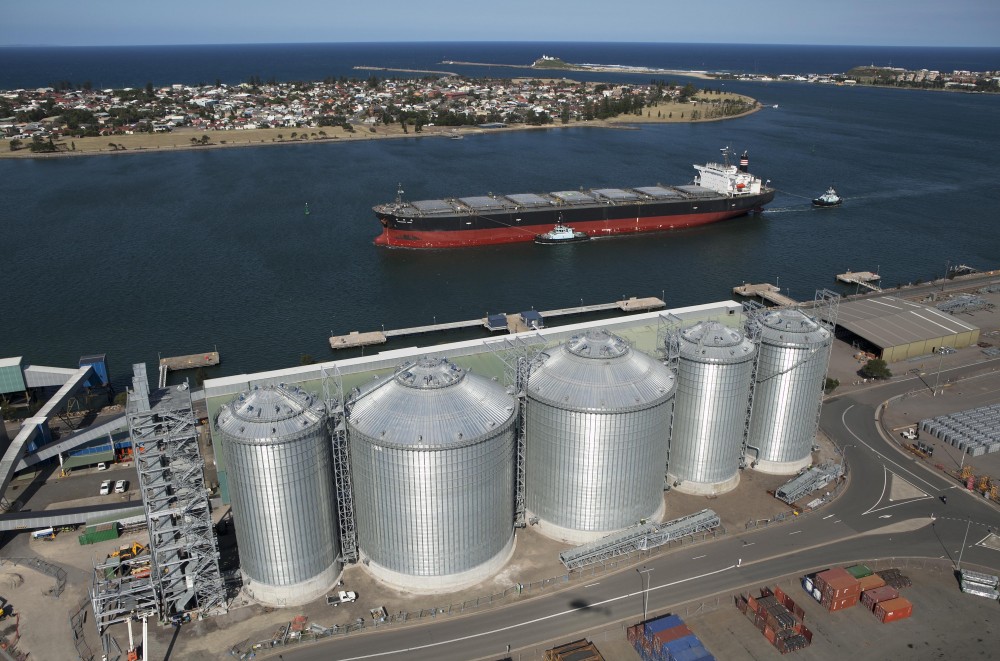A surge in coal and wheat exports has underpinned a new trade record for the Port of Newcastle, delivering another wave of bright economic news to the Hunter.
Australia’s third largest port handled just under 168 million tonnes in 2016 (trade value: $AU18.69 billion), an increase of 3.8 million tonnes on the previous year. And with further investment being made to grow trade, Chief Executive Officer, Geoff Crowe, is confident the Port of Newcastle will remain pivotal to the Hunter’s economic success.
“This is a great result for the Port, the Hunter region and the state, and we continue to work with industry and businesses throughout our New South Wales catchment area to deliver new trade,” Geoff said.
In a further sign of the recovery in resources, just over 161 million tonnes of coal was exported, an increase of almost 3.3 million tonnes or 2 per cent on 2015. A new monthly coal export record of 15.9 million tonnes was achieved in December 2016; the previous record was 15.8 million tonnes in December 2014. Wheat exports surged to nearly 761,000 tonnes, an increase of 467,000 tonnes on 2015, while fuel imports rose to nearly 1.7 million tonnes, an increase of 15% on 2015.
“By trade volume, the Port of Newcastle is Australia’s third largest port and is ranked 24th in the world, and we have huge capacity for further diversification and growth, with 200 hectares of vacant land and a shipping channel which can handle double the current ship numbers,” Geoff continued.
“Port of Newcastle continues to operate and invest in maintaining the port to optimise its use, including through challenging weather events and peak times, for customers’ convenience and reliability.”
The Port of Newcastle handles 25 cargoes to and from its catchment area which spans west to Parkes and north to Moree, taking in Dubbo, Tamworth, Armidale, Narromine and Walgett. This area is rich in minerals, agriculture, meat, timber and the manufacture of steel and aluminium.
Coal represents 96% of the Port of Newcastle’s trade, providing a stable foundation for further growth and diversification of other trades including fuel, cruise ships, agriculture and steel.
In 2016 2,258 ships visited the port. Interesting cargoes included wind turbines bound for the White Rock Wind Farm in Glen Innes and new ship loaders for Port Waratah Coal Services Carrington Terminal.
Recent investment in port infrastructure will support the continued growth of trade:
- Stolthaven is constructing a dedicated fuel berth (Mayfield 7), which is adjacent to the Mayfield bulk liquids precinct.
- Port of Newcastle invested $5.4 million in the installation of power, water and data to facilitate future developments at its Mayfield Site and work was completed in 2016. It also funded improvements to port roads.
- The NSW and Federal Governments committed $800,000 for the installation of new mooring bollards at the port’s cruise ship berth (Channel Berth), with work commencing in early 2017. Planning is well underway for the $12.7 million cruise terminal (funded by the NSW Government) with construction due for completion by the end of 2018.
IMAGE | A coal ship passes the Newcastle Agri Terminal grain silos






